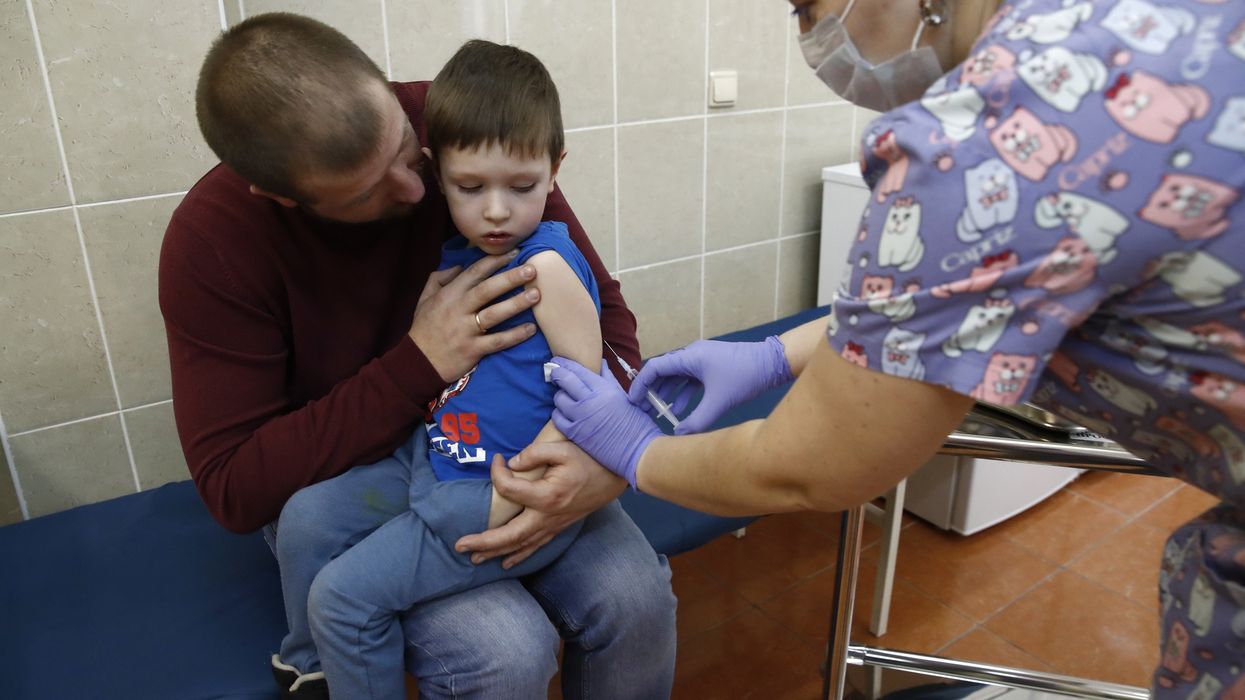
Artyom Geodakyan\TASS via Getty Images

Large study by researchers in Denmark shows no association between the MMR vaccine and autism
A large study has again shown there's no possible link between the measles-mumps-rubella (MMR) vaccine and autism.
"The new study, if we needed it, puts to rest once again that there is no association between measles vaccine and autism," Dr. William Schaffner of Vanderbilt University Medical Center told CBS News.
Researchers found there is no increased risk for autism in vaccinated children over those who were not vaccinated. It also showed that the MMR vaccine does not trigger autism in children who are at higher risk of developing the disorder.
Researchers followed more than 657,000 children born from 1999 to December 2010. The study has been published in the Annals of Internal Medicine.
Some parents believe there is a link between childhood vaccinations, specifically MMR, and they have refused to vaccinate their kids.
"Because children have been withheld from vaccination, the disease has reoccurred," Schaffner said. "It's imported from other parts of the world, [it] finds those pockets of susceptible children and causes illness also among children who are too young to be vaccinated."
In 2000, measles was declared eradicated from the U.S.
Eight years later, outbreaks began to appearing in communities of people who were not vaccinated.
Since Jan. 1, there have been at least 206 confirmed cases of measles across 11 states, according to the U.S. Centers for Disease Control and Prevention.
Measles is an acute respiratory virus characterized by a fever as high as 105 F, cough, rash, conjunctivitis, and fatigue. It can cause serious complications, including pneumonia and encephalitis, which can cause brain damage.
One or two out of every 1,000 children who contract the disease will die, according to the CDC.
The illness can cause severe illness in infants, pregnant women and those with compromised immune systems.
More than 25 years ago, mercury preservatives were removed from childhood vaccines. The change showed no drop in the number of autism diagnosis.
Researchers strongly recommend parents have their children vaccinated.
Children should receive one dose at 12 to 15 months and a second dose at 4 to 6 years.
The CDC recommends two doses for immunity from the disease. The two doses are about 97 percent effective for immunity.